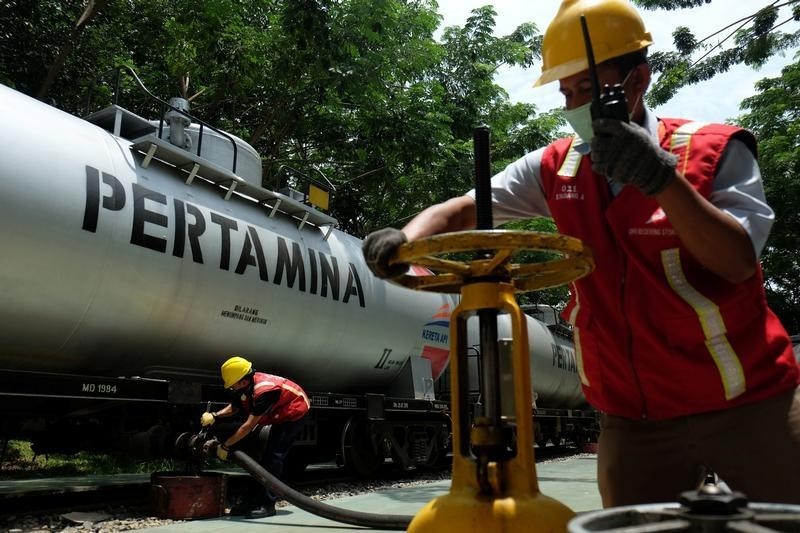By Amanda Cooper
LONDON (Reuters) - The chance of an agreement to freeze or cut crude output when OPEC members meet next month might appear more distant now Iraq has joined those asking for an exemption, but investors are ramping up their bets that oil prices will rally.
The price of oil has this month risen to its highest so far this year, having gained more than 10 percent in the four weeks since the Organization of the Petroleum Exporting Countries agreed to cut production and rein excess global supply.
Since the decision at a meeting in Algiers on Sept. 28, at which OPEC said it would seek to cut output to output to a range of 32.5-33.0 million barrels per day, from its current estimate of 33.24 million bpd.
Although there are questions hanging over how much each country will cut and whether all countries will agree to it, investors have raised their bets in both futures and options at breakneck speed that oil prices will continue to rise.
Data from the U.S. Commodity Futures Trading Commission (CFTC) and the InterContinental Exchange shows money managers have added to their bets on a rising crude price at the fastest monthly pace on record in October.
Fund managers have bought nearly 218,000 lots of crude futures and options contracts in October alone, the largest monthly rise to date, as investors have taken heart from falling stockpiles.
"While much of the oil market paints a picture of a commodity struggling under the weight of a huge surplus, statistical balances suggest that conditions have improved markedly," Barclays (LON:BARC) commodities analyst Kevin Norrish said in a note."If OPEC comes up with a meaningful cut to output in November and the northern hemisphere has a reasonably cold winter, then in our view, crude oil price risk will return very much to the upside."
Total net long holdings of U.S. and Brent crude oil futures and options now stands at nearly 688,000 lots, equivalent to around 688 million barrels of oil, nearly a week's worth of total global consumption.
This position has doubled since the start of August, when Saudi Arabia first signalled the possibility of an agreement between the group and non-member Russia to temper output.
IRAQ WANTS OUT
A number of countries that are still scrambling to regain market share, including Iran, which was under Western sanctions until January, Nigeria and Libya, which have seen their production curtailed by violence and civil unrest, are widely expected to be exempt from any such deal.
Brent crude futures (LCOc1) fell as much as 2.5 percent on Monday after Iraq, the second-largest OPEC producer after Saudi Arabia and the biggest contributor to the group's supply growth, said it should also be exempt from having to cut.
On the surface, the options market seems to suggest investors are betting against any deal when OPEC members meet in Vienna in late November.
Speculators hold nearly 10 percent more sell options than buy options for contracts expiring after the meeting on Nov. 30, but this belies a more bullish picture.
Holdings of bearish February sell, or put, options that expire after the Vienna meeting have risen by 40 percent to a total 38,000 lots since the gathering in Algiers for puts that give the holder the right to sell at $35, $40, $45 and $50.
Yet the average cost of owning this set of options has tumbled to $0.53 a barrel from $2.42.
Meanwhile, holdings of bullish buy, or call, options that give the holder the right to buy at $50, $55, $60 and $65, have risen by 60 percent to around 26,000 lots since late September and the average cost of owning these particular options has risen to $1.91 a barrel from $1.19 a month ago.
Energy hedge fund manager Pierre Andurand, who shot to financial fame in 2008 by correctly predicting the spike and subsequent drop in the price of crude that year, told the Reuters Commodities Summit on Oct. 13 the OPEC decision was a "game-changer".

"In 2014 the big opportunity was in prices going down and now the big opportunity is in prices going up. That's the way I see it," he said.